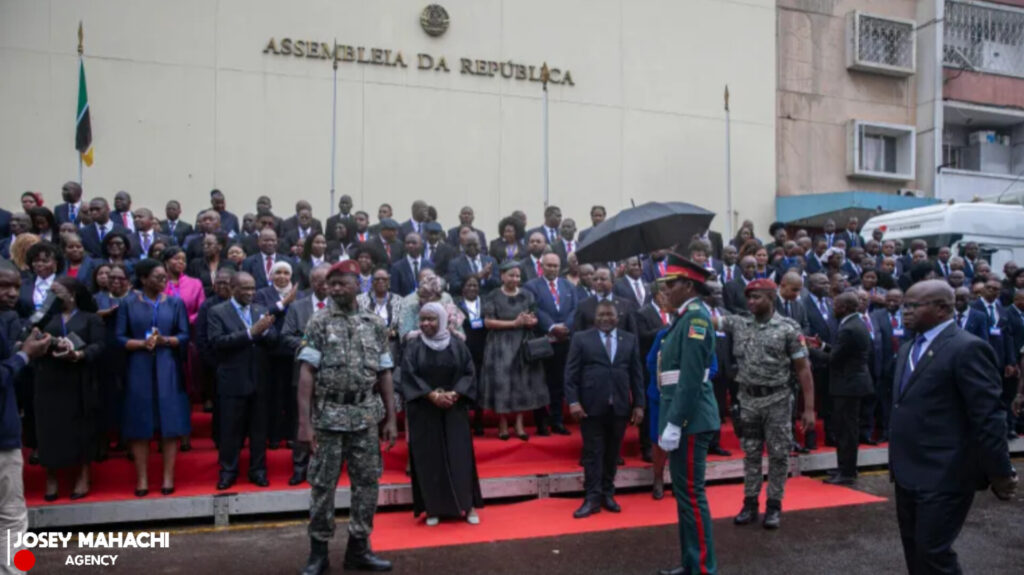By : Lloyd Mahachi
Mozambique has sworn in its new parliament, despite opposition protests and boycotts over disputed election results. The streets of the capital, Maputo, were largely deserted after opposition leader Venancio Mondlane called for a strike to protest the outcome of the October election.
Two smaller opposition parties, Renamo and MDM, boycotted the opening ceremony, refusing to accept the election results. The incoming president, Daniel Chapo, called for calm and unity after months of deadly unrest. Chapo’s Frelimo party has been in power for 50 years, and opposition leader Mondlane claims the election results were rigged in their favor.
Mondlane, who is popular among Mozambique’s marginalized youth, urged his supporters to demonstrate their refusal of the official election result with a national strike from Monday to Wednesday. The strike coincides with Chapo’s inauguration as president. Military police surrounded the parliament building, and police blocked the main roads to the area during the inauguration ceremony.
The city center, usually busy on a Monday morning, was deserted, with most shops closed and protesters manning barricades in certain areas. Al Jazeera’s Fahmida Miller reported from the Matola neighborhood, a stronghold of the opposition in Maputo, where people were trying to block a main road into the city center.
The protesters aimed to stop people from passing through the road, using burning tires and stones to block the way. This was part of their strategy to bring Maputo to a standstill. Chapo and outgoing President Filipe Nyusi were present at the parliament opening, where parliamentarians from Frelimo and the Podemos party were sworn in.
Renamo’s 28 MPs and the eight from the MDM stayed away in protest, calling the opening of parliament a “social outrage” and a lack of respect for the will of Mozambicans. The MDM said it was boycotting to show its alignment with demands for “electoral truth.” Official results gave Chapo 65 percent of the presidential vote, compared to 24 percent for Mondlane.
However, Mondlane claims he won 53 percent and that Mozambique’s election institutions manipulated the results. The unrest since the October 9 election day has claimed about 300 lives, according to a local rights group. Security forces have been accused of using excessive force, including live bullets, against demonstrators.
The unrest has caused major losses to Mozambique’s economy, stopping cross-border trade and affecting shipping, mining, and industry. Mondlane has called for dialogue to resolve the standoff, but he has been excluded from talks between Chapo, Nyusi, and the leaders of the main political parties. Despite this, Mondlane has expressed his readiness for dialogue, saying, “I’m here in the flesh to say that if you want to negotiate… I’m here.”
Editor : Josephine Mahachi

